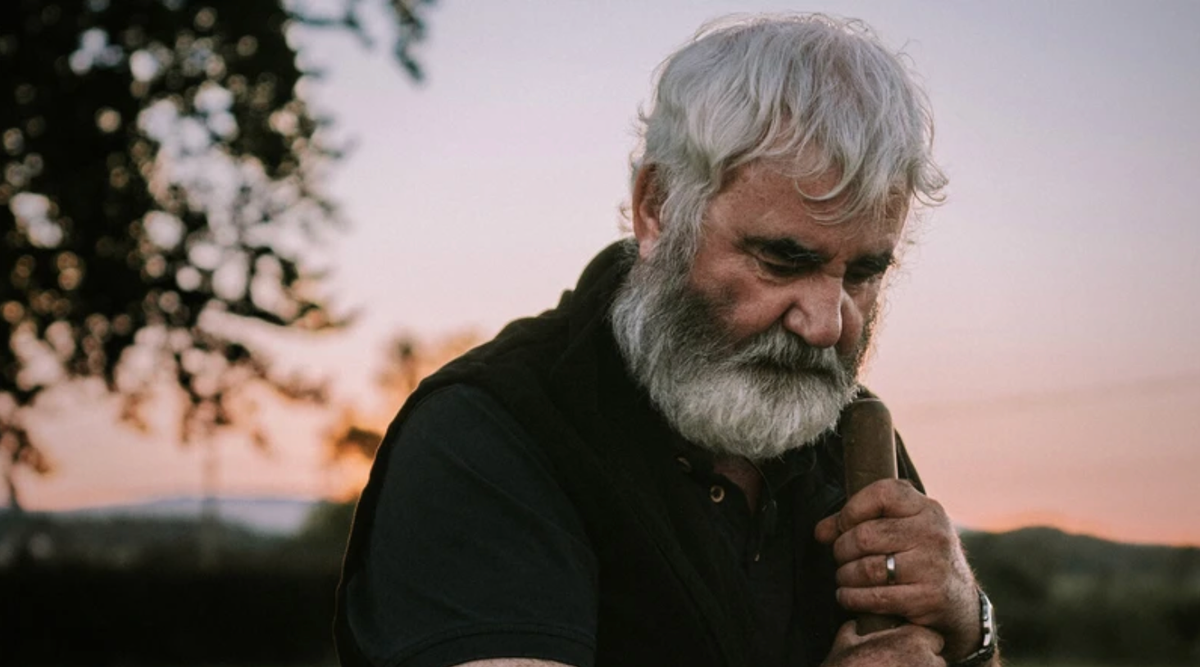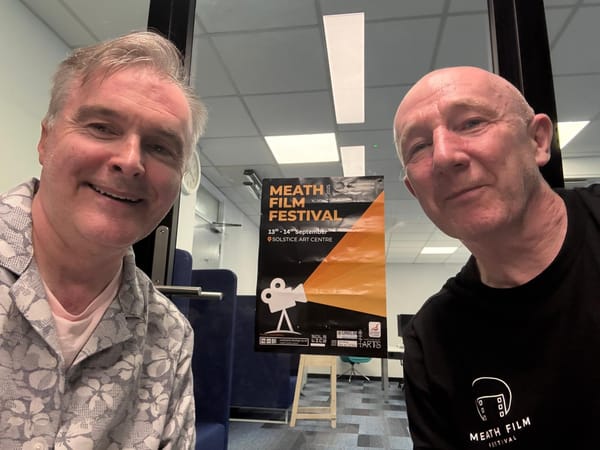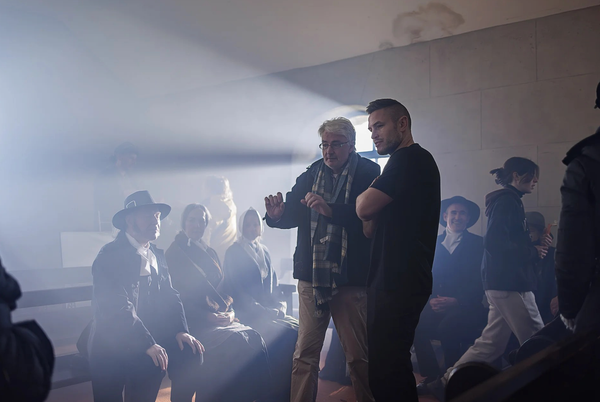Shannon Goodfellow looks at the weight of loneliness with her review of Solitary.
With every crunch of gravel and flicker of light, there creeps in a rising feeling of defencelessness and dread. Following a break-in at his home, and a growing spree of crime in the local area, this is how elderly farmer Brendan (Gerry Herbert) endures the long nights. In his feature debut, writer and director Eamonn Murphy crafts an intimate portrait of life in rural Ireland for a man whose confidence is slowly eroded by fear, isolation and reclusion.
Gerry Herbert’s restrained and nuanced performance as Brendan anchors the film. Every change in Brendan is nuanced as the impact of the robbery makes itself known. A quiet and steady presence slowly becomes dazed and hesitant under constant stress. Herbert brilliantly showcases vulnerability in subtle expressions and body language as Brendan’s sense of safety is slowly erased. Despite concern and the offer of support from local friends and his daughter, Brendan’s stoicism prevails. With a constant insistence that everything is “grand,” the film poses an interesting consideration of older people’s attitudes to mental health and fear of being burdensome.
The supporting cast provide a wonderful contrast to such a quiet and internal protagonist. A particular standout is Frances Blackburn as Brendan’s outspoken friend Peg, who injects a spark to rival Brendan’s subdued nature. Cáilum Carragher also brings an open and kind presence as young farm labourer Shane, infusing Brendan’s home with some much-needed warmth and light.
Solitary’s pace is slow and intentional, allowing the wound of each tragedy Brendan faces to sink in and fester. The camera lingers in static long shots, showcasing the lush majesty and remoteness of the rural Laois landscape. Brendan moves through the vast frames at his ease, never mingling with anyone for too long, except perhaps his adorable dog Boots. The visual language of the film changes when in Brendan’s house, particularly at night. Cool tones and slow panning shots from doorways to other points of entry ramp up the anticipation with every passing night. Intercut with close-ups of a distressed Brendan navigating the prison that his home becomes, a suffocating atmosphere quickly arises.
Striking visuals are accompanied by very effective sound design. As Brendan’s fear and paranoia grow worse, diegetic sounds are amplified in his state of panic. As he stalks through his own house looking for danger, his ragged and laboured breaths drown out any bumps in the night. A phone ringing cuts through the air like a blade. When this anxiety bleeds through from night to day, even his cows nearby or and the birds squawking in the sky pose a threat. Every facet of his life becomes distorted. Jonathan Casey’s string-heavy score is used sparingly but always with great purpose. In moments when Brendan’s mind is filled with worry he isn’t able to express, the feverish music amplifies the rising tension and disorientation.
Murphy’s self-funded debut does wonders with its simple premise, examining a broad range of themes in the process. Ruminations on rural loneliness, generational divides and agricultural careers in the current economic climate blend together effectively. Solitary is a timely tribute to endurance and a reckoning on anxieties faced by the elderly. These are not only concerns for themselves, but for the next generation of young Irish people that they will leave behind.
Solitary premiered at Galway Film Fleadh, has just screened at Louth International Film Festival and is the closing film at Meath Film Festival on 14th September 2025. Get your tickets here.



